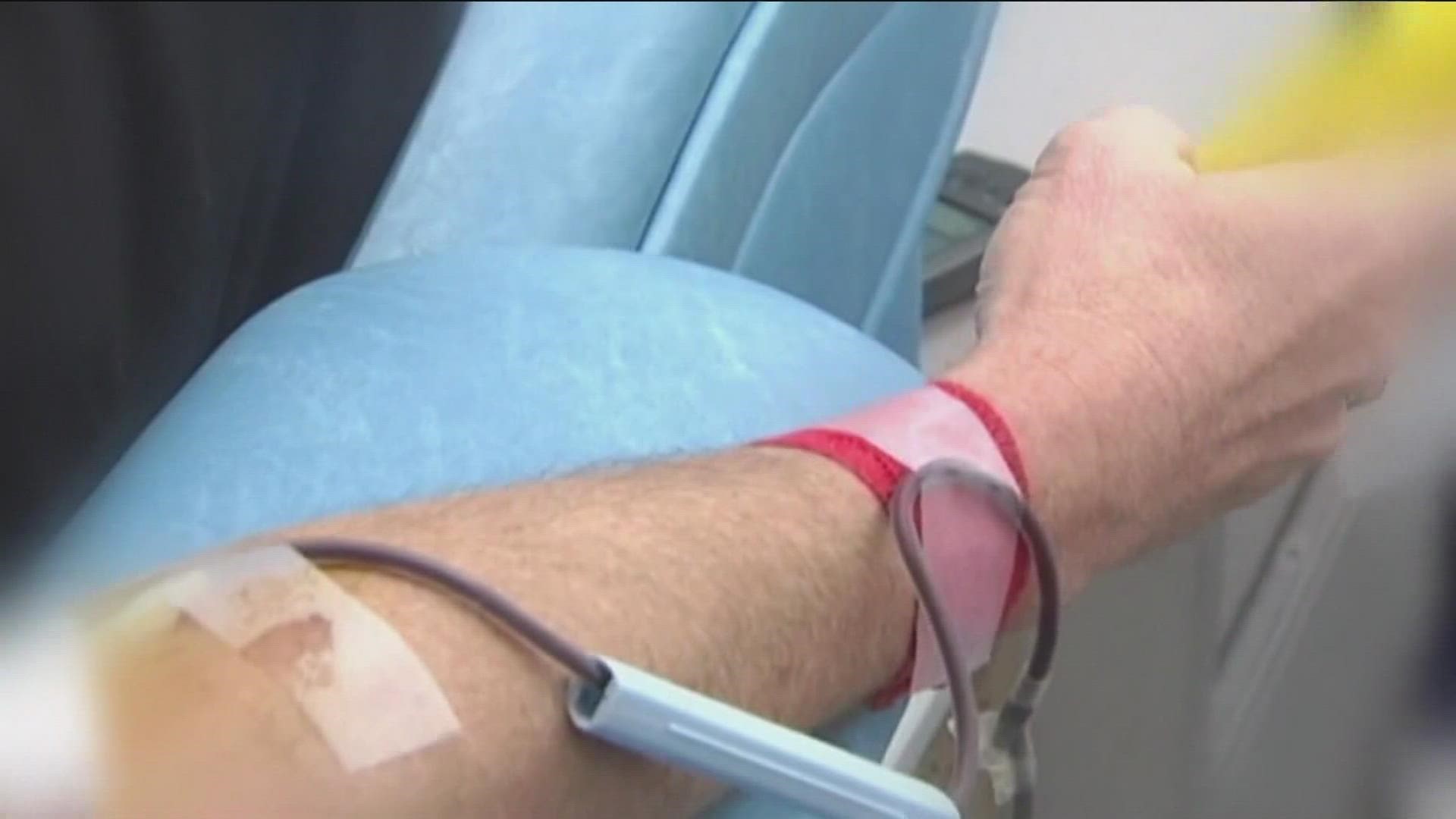ATLANTA — In a historic move Friday, the FDA announced its will officially end the lifetime ban on blood donations from gay and bisexual men -- and Atlanta residents were at the center of a study to help make it all happen.
“I’m not personally fond of needles and giving blood but I will now do so knowing now that I don’t have to lie,” Atlanta resident Ron Roberts said. "Roberts is among those celebrating the FDA’s decision to lift the ban on gay and bisexual men blood donations."
Roberts added that he feels as if there is no vindication for what gay and bisexual men have been denied when it comes to the importance of giving blood to potentially save a life. He also noted in the past that he's had to lie when those necessary situations have presented themselves.
According to Dr. Ludwig Frontier, who is a member of the Association of Blood Bank of America and researched blood donations within the men gay community, the decision to relax the restrictions comes at a time when there is a dire need.
“It’s time. One side of me feels sad because it’s happening because we need it," Frontier said. "blood viability in the United States is an emergency, its a health crisis."
The science behind the FDA’s ban was based on flawed information, according to Frontier.
“The science changes. We cannot can have science from 1972 and apply it to today because the tools we have as scientist evolves, so I will not blame something or a decision that was made 30 years ago," added Frontier. "What I would blame is that we are still counting on them."
Steven Igarashi-Ball is the director of engagement at Atlanta Pride Committee. He said Atlanta was one of cities studied by the FDA as they considered reversing the ban.
“I’ve been advocating for this for years, decades, because it’s really based in outdated information and misinformation,” Igarashi-Ball said.
He explained that relaxing of the FDA lifetime ban on blood donations from gay men ends years of discrimination based on sexuality.
“Instead, it will be based on a screening process based on risk activity that will be applied across the board equally to everyone and that’s all we’ve been asking for,” Igarashi-Ball said.
Now it isn’t a done deal just yet. Today’s proposal will be open for public comment for 60 days. The agency will then review and consider all comments before finalizing the guidance.
If approved, the FDA will instruct all blood donation centers to move to a "Risk Based Assessment" for blood donations. Advocates estimate this could help boost our nation's blood supply by as much as 10% -- helping save thousands of lives.

